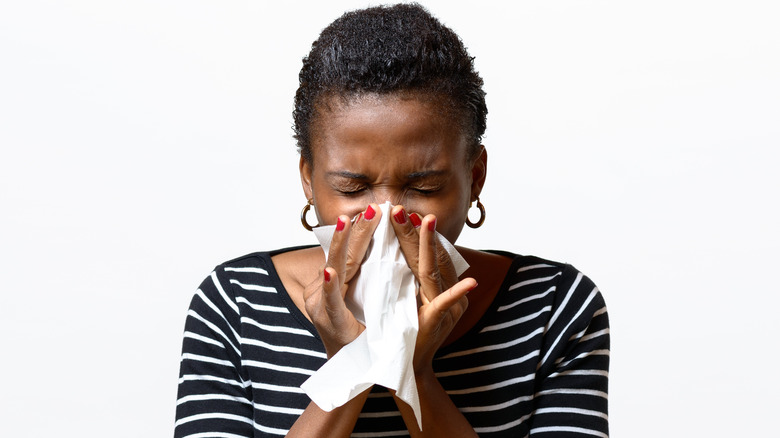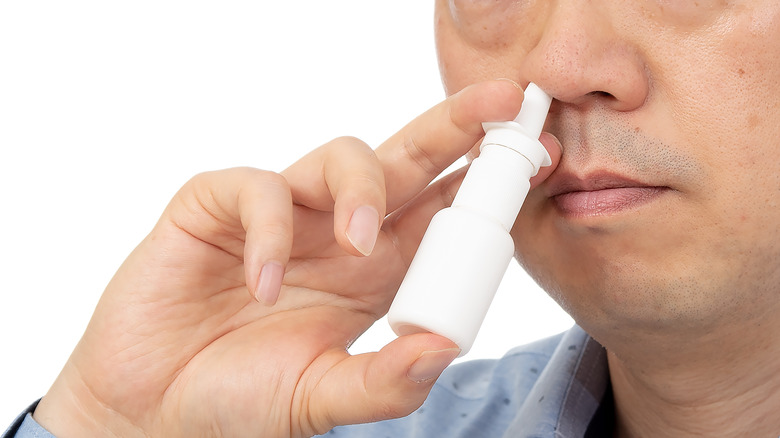The Best Way To Get Rid Of Painful Boogers
It may surprise you to know that you produce nearly 6 cups of mucus a day (via LiveStrong). But that's no reason to be alarmed. Mucus serves as a defensive barrier to protect against germs and irritants entering the body, according to Medical News Today. "Mucus...acts to trap foreign substances like dirt, bacteria, and pollutants that we don't want in the body," associate professor of otolaryngology and rhinology at the University of Texas Health Science Center, Dr. Philip Chen, told LiveStrong.
You swallow most of the mucus your body produces, but there's always some that's left in your nose. Typically, a good nose blowing can do the trick to clear your nasal passages. But on occasion, the mucus in your nose dries out and forms into hard — and hard-to-remove — boogers (per LiveStrong). It may be tempting to jam a finger up your nose to dig out a booger but think twice about doing so. A 2018 study showed that nose-picking can enable the transfer of pneumonia-causing bacteria. Not only can deep probing into the nasal cavity make you susceptible to illness, but it may also prompt a nose bleed (via Medical News Today).
So if nose-picking is out, what's the best way to remove those painful boogers?
Stick to nasal sprays, gels, and irrigation products
There are better ways to remove stubborn boogers than relying on your fingertips. According to Dr. Philip Chen of the University of Texas Health Science Center via LiveStrong, "Saline-based nasal treatments are the safest and probably most effective interventions." Using a saline mist or spray, which works by moistening dried-out mucus, is one good option. Nasal gels that coat and moisten the nasal passages work well, too, and last longer than sprays. If you want a thorough rinse, a Neti-pot is an effective tool used to flush out any obstinate boogers.
To reduce the chance of overly-hardened boogers forming in the first place, it's important to keep the insides of the nostrils moist (via LiveStrong). One way to do this is by using a humidifier to help keep the air in your home moist, especially during the winter months when air is usually dry from indoor heating. Additionally, keep your body hydrated by drinking plenty of water, as dehydration can also lead to the formation of uncomfortable boogers. Lastly, consider moisturizing the inside of the nose itself with natural oil (via Medical News Today). Experts at Geelong Medical & Health Group suggest gently applying coconut oil, olive oil, or sesame oil with a cotton swab.

